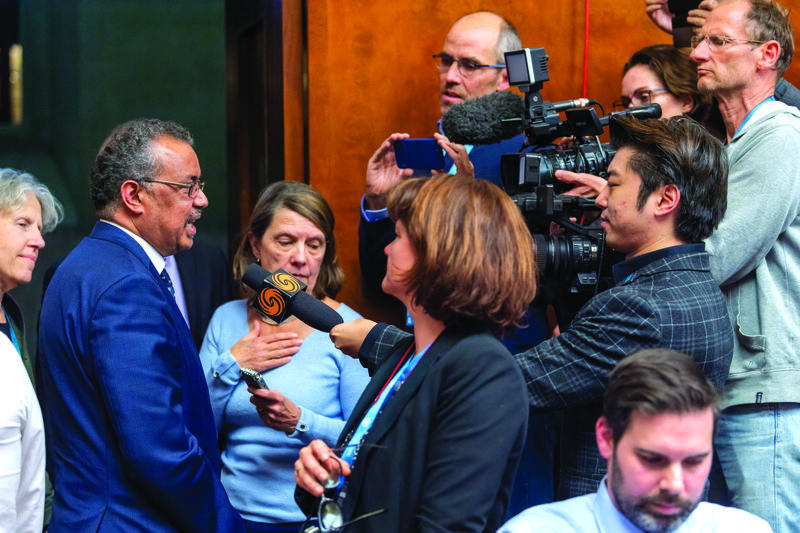By Caleb Slinkard
Managing Editor
Sen. Tom Cotton (R-Ark.) referenced a potential China travel ban last week in a letter to the U.S. Department of Health and Human Services. This week, he’s called for the U.S. to institute that ban.
Cotton, in a letter to HHS, Homeland Security and the state department, called for the administration to implement a “targeted travel ban” to “stop the spread of coronavirus.” The proposed ban would halt all commercial flights from China to the U.S. immediately; give Americans in China and immediate family members the option to evacuate to the U.S.; require the federal government to develop “strict criteria for allowing critical trade to continue,” including cargo flights and seaborne shipping, in an effort to limit the economic impact of the ban on the U.S. economy; and would allow medical personnel and scientists to travel between the countries to combat the virus.
The junior senator from Arkansas has repeatedly questioned the accuracy of the virus data provided by Beijing, noting that the number of infected people released earlier these week were probably much lower than the reality.
“…The real number is likely far higher—perhaps in the hundreds of thousands—given the Chinese Communist Party’s long history of covering up and minimizing these crises,” Cotton wrote. “China’s own actions demonstrate the severity of the threat. Beijing has quarantined more than 50 million people—the combined population of our entire West Coast—and cancelled school indefinitely. Just this morning, Hong Kong has slashed travel from mainland China. These are not the actions of a government in control of the outbreak.”
While other U.S. officials and world health officials have not indicated that the number of infectedindividuals is far higher than reported by China, many have expressed concerns about the rapid spread of the virus, according to reporting by the Associated Press. While the death total for the coronavirus — 132 — is less than half the number of people in China who died from severe acute respiratory syndrome (SARS) outbreak in 2002-2003, more people have been infected with the coronovirus.
Wednesday, the Arkansas Department of Health confirmed it was investigating a possible case of the coronavirus in Arkansas.
According to the Centers for Disease Control and Prevention (CDC), the coronavirus family is a large family of viruses, some of which cause illness in humans and “circulate among animals, including camels, cats and bats. SARS and MERS are two well-known animal coronaviruses that evolved and infected people. The CDC began to screen people at three main ports of entry to the United States — the San Francisco, JFK and LAX airports — on direct or connecting flights from Wuhan on Jan. 17, and have added screenings at almost 20 other airports.
Countries, including the United States, have begun evacuating their residents for Wuhan, the city where the first cases of the coronavirus were reported. Wuhan, a city of more than 11 million people, is the capital of the Hubei province. According to the CDC, signs and symptoms of this illness include fever, cough, and difficulty breathing. While the origins of the virus are unknown, coronaviruses that infect humans typically spread through close contact between people.
The virus has spread to 19 additional countries, including the United States, where five cases had been reported by Tuesday. Cotton called on President Donald Trump’s administration to “marshal the full resources of the federal government to engineer a vaccine to the virus.”
"America is blessed with world-leading researchers and laboratories on the cutting edge of medical science and epidemiology,” he wrote. “Working in tandem with them, I’m confident our federal research agencies can develop a vaccine in record time. To the extent additional money or legal authorities are needed for a Manhattan Project-level effort to create a vaccine, I stand ready to assist in the Congress.”
The World Health Organization’s Emergency Committee is slated to meet again today. Several companies, with assistance from international grants, are working to develop a vaccine, but historically epidemic vaccines take several months, if not more than a year, before they're developed, tested and made available to the public.
